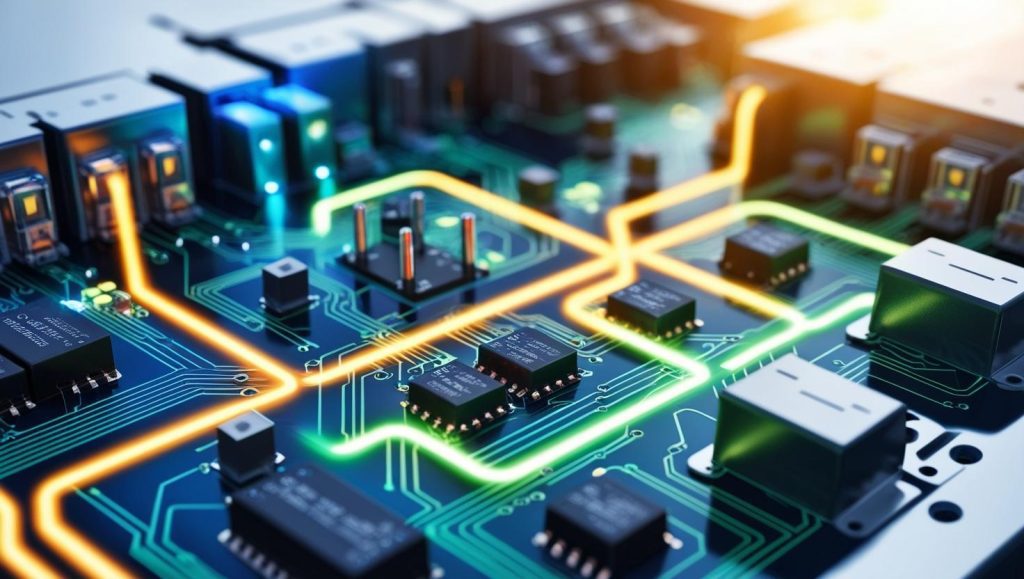Introduction
Power electronics is a crucial field of electrical engineering that deals with the conversion, control, and management of electrical power. It plays a key role in modern industrial applications, from renewable energy systems to electric vehicles. However, students often find this subject challenging due to its complex mathematical modeling, circuit analysis, and practical implementation. If you’re struggling with assignments, this Power Electronics Homework Help guide provides valuable insights, study resources, and expert tips to help you excel.

Understanding Power Electronics
Power electronics involves designing and analyzing circuits that efficiently convert electrical energy. These systems use semiconductor devices such as diodes, transistors, and thyristors to control electrical power flow.
Key Topics in Power Electronics
- Semiconductor Devices: Understanding diodes, MOSFETs, IGBTs, and thyristors.
- AC-DC Converters (Rectifiers): Single-phase and three-phase rectifiers.
- DC-DC Converters (Choppers): Buck, boost, and buck-boost converters.
- DC-AC Converters (Inverters): Single-phase and three-phase inverters.
- AC-AC Converters: Cycloconverters and matrix converters.
- Switching Power Supplies: SMPS design and analysis.
- Power Factor Correction: Methods to improve efficiency.
- Motor Drives and Control: Applications in electric vehicles and industrial automation.
- Renewable Energy Applications: Power electronics in solar and wind energy systems.
Challenges Students Face in Power Electronics Assignments
- Complex Circuit Analysis: Requires a deep understanding of electronic components and their behavior.
- Mathematical Computations: Involves solving differential equations, Laplace transforms, and Fourier analysis.
- Simulation and Testing: Using software like MATLAB, PSPICE, and LTspice for circuit modeling.
- Hardware Implementation: Understanding practical aspects such as thermal management and electromagnetic interference.
- System Optimization: Balancing efficiency, cost, and performance in real-world applications.
How to Excel in Power Electronics Homework
1. Utilize Online Learning Resources
Explore free and paid platforms for in-depth learning:
2. Refer to Standard Textbooks
Recommended books for mastering power electronics include:
- “Power Electronics: Converters, Applications, and Design” by Ned Mohan
- “Power Electronics: Circuits, Devices and Applications” by Muhammad H. Rashid
- “Fundamentals of Power Electronics” by Robert W. Erickson
3. Practice with Simulation Software
Using tools like MATLAB, Simulink, PSPICE, and LTspice enhances understanding and application.
4. Seek Professional Homework Help
Get assistance from reliable sources:
- Chegg
- TutorMe
- Udemy
5. Engage in Online Communities
Join discussion groups and forums like Stack Exchange, Quora, and Reddit for peer learning.
6. Work on Real-World Projects
Build small-scale projects, such as solar inverters, motor controllers, or SMPS circuits.
Importance of Power Electronics in Engineering
- Renewable Energy Systems: Key component in solar and wind power applications.
- Electric Vehicles: Used in battery management and motor drives.
- Industrial Automation: Enhances energy efficiency in manufacturing systems.
- Consumer Electronics: Found in chargers, power supplies, and audio systems.
Conclusion
Mastering power electronics requires a combination of theoretical knowledge, practical application, and software proficiency. If you need Power Electronics Homework Help, leverage online courses, textbooks, simulation tools, and expert tutoring services. By using these resources effectively, you can gain a deep understanding of power electronics and excel in your assignments.


